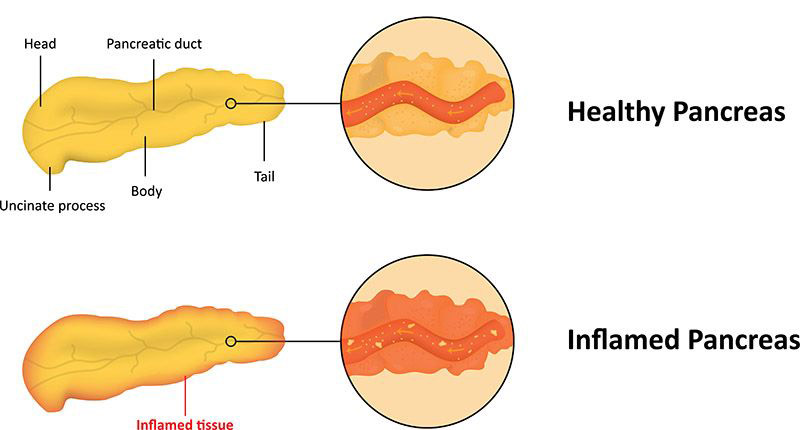
Acute pancreatitis is the sudden swelling and inflammation of the pancreas gland. This causes inflammation, swelling, bleeding, and damage to the pancreas and its blood vessels.
The most common cause of acute pancreatitis is gallstones. Other causes include abdominal trauma, use of certain medications, infections, tumors, genetic abnormalities of the pancreas, and alcohol.
- Abdominal pain
- Fever
- Nausea
- Vomiting
- Sweating
- Clay-colored stools
- Abdominal swelling or tenderness
- Jaundice
In addition to a physical examination your physician may order one or more of the following tests:
- Abdominal Ultrasound
- CT Scan
- Endoscopic Ultrasound (EUS)
- Magnetic Resonance Cholangiopancreatography (MRCP)
Treatment may involve a short hospital stay, pain medications, IV fluids, and / or stopping food or fluid intake by mouth for a short period of time in order to limit the activity of the pancreas. In order to prevent future episodes of inflammation, treatment may also include Therapeutic Endoscopic Retrograde Cholangiopancreatography (ERCP) to view the pancreas, gallbladder, and bile ducts as well as provide access in order to treat the complications of acute pancreatitis (gallstones, narrowing or blockage of the pancreatic duct or bile ducts, leaks in the bile ducts, or accumulation of fluids).
